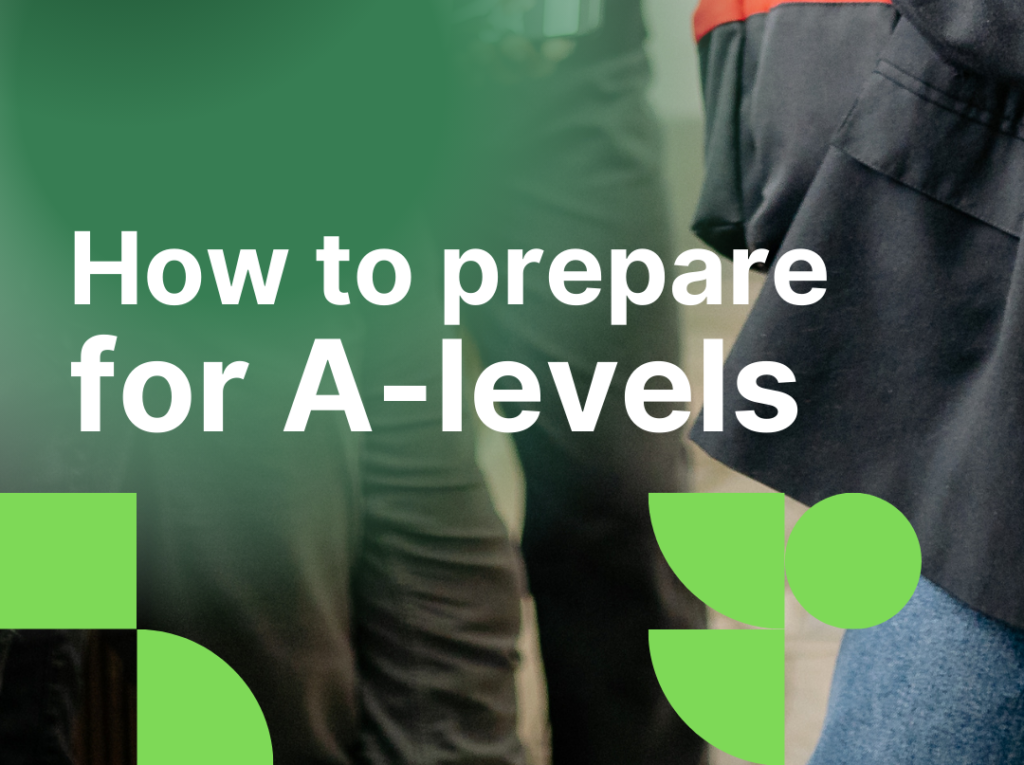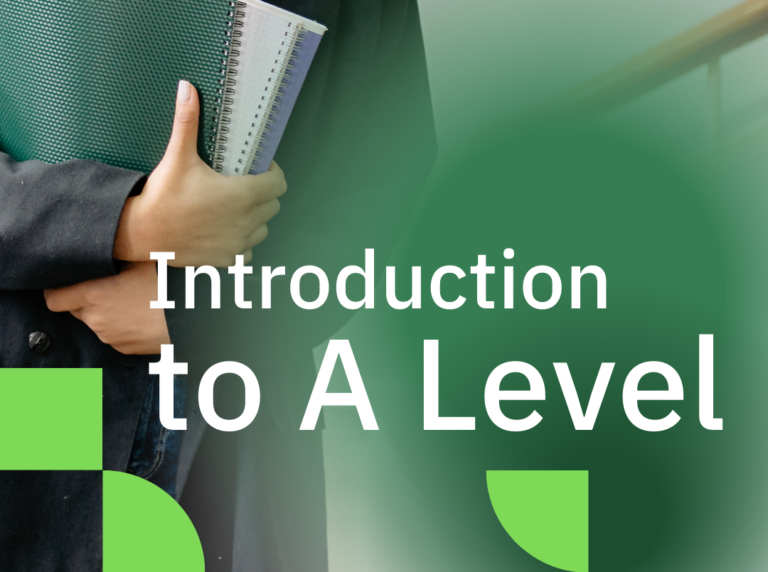
Table of Contents
What Every Student Should Know About A levels in the UK
The transition from GCSE to A-Level studies is undoubtedly a significant one for students. The workload increases, the content becomes more complex, and there’s a greater focus on independent study. Here are some tips on how students can prepare best for this transition:
Familiarize Yourself with the A levels Syllabus
Understanding what the course involves ahead of time can lessen the shock of starting the new school year. Look up the exam board’s official specifications for each subject you’ve chosen. This will tell you what topics you’ll be covering and what the examiners are looking for in your answers.
AQA (Assessment and Qualifications Alliance)
OCR (Oxford, Cambridge and RSA Examinations)
WJEC (Welsh Joint Education Committee)
Want to know more about exam boards? click here
Work on Time Management and get organized
Managing your time effectively is pivotal for your success in A-Level exams. Here are some strategies that can help you get organized:
- Create a Timetable: Design a daily, weekly or monthly study timetable that includes all your subjects. Be sure to allocate more time to subjects you find challenging.
- Break Down Your Study Sessions: It’s easier to remember content if you study in short, focused bursts. The Pomodoro Technique, where you study for 25 minutes then take a 5-minute break, can be very effective.
- Prioritize: Understand which topics demand more attention based on their difficulty, relevance, and weightage in the exam. Use this to prioritize your study time accordingly.
- Set Goals: Have clear, realistic goals for each study session. This could be to write notes on a chapter, solve a set number of math problems, or practice a past paper.
- Organize Your Study Space: Keep your study materials and notes organized. An orderly study environment can help your focus and efficiency.
- Minimize Distractions: Turn off your phone or use apps that block social media during your study sessions. Distractions can hinder your focus and productivity.
- Take Care of Your Health: Regular exercise, a balanced diet, adequate sleep, and hydration play a significant role in your ability to concentrate and perform in exams.
- Incorporate Rest: It’s important to take regular breaks for rest and relaxation. This can include activities like reading, playing a sport or listening to music. It’s essential to balance work and rest to avoid burnout.
And finally, it’s completely okay to have off days. Some days will be more productive than others. The key is to remain consistent and not let a bad day discourage you. Remember, these are only suggestions. What works best can vary from person to person, so don’t hesitate to tweak them or try out your strategies.
Past paper training
There are several websites you can explore to find and download a vast collection of GCSE past papers. Here are a few examples:
- AQA (Assessment and Qualifications Alliance) (www.aqa.org.uk): This is the official website for the AQA exam board. They have a dedicated section for past papers and mark schemes.
- Edexcel (www.edexcel.com): This is another examination board that provides past papers and mark schemes.
- OCR (Oxford, Cambridge and RSA Examinations) (www.ocr.org.uk): You can find relevant past papers and mark schemes for GCSE subjects provided by the OCR examination board on their official website.
- GCSE.com (www.gcse.com): This is an independent website that provides a range of GCSE resources, including past papers.
- Physics and Maths Tutor (www.physicsandmathstutor.com): Despite the name, this website covers more than just physics and maths. They compile past papers for many subjects from various exam boards.
- Past Papers.co.uk (www.pastpapers.co.uk): This website includes past papers from various examination boards.
Remember to check that the past papers correspond to the exam board and the specific syllabus for your GCSEs, as different exam boards have different formats and requirements. All sites mentioned have sections for mark schemes or examiner reports that go hand-in-hand with the papers, these are invaluable resources when self-studying or revising.
Online learning through YouTube
Here are a few YouTube channels dedicated to A-Level Mathematics:
- ExamSolutions: This is one of the most comprehensive resources for A-Level maths on YouTube. The channel covers almost all topics you’ll encounter in your study, with step-by-step solutions to typical exam questions.
- TLMaths: This channel is excellent for learning complex mathematical concepts. The A-Level course is structured by exam board, which is really convenient.
- HEGARTYMATHS: While this channel broadly providers content up to GCSE level, there are also some useful videos for A-Level maths students, especially if you need to revisit certain foundational topics.
Just remember that while these resources are great for exploring concepts in a different way and revising content, they should complement, not replace, your primary study material given by your educational institution.
